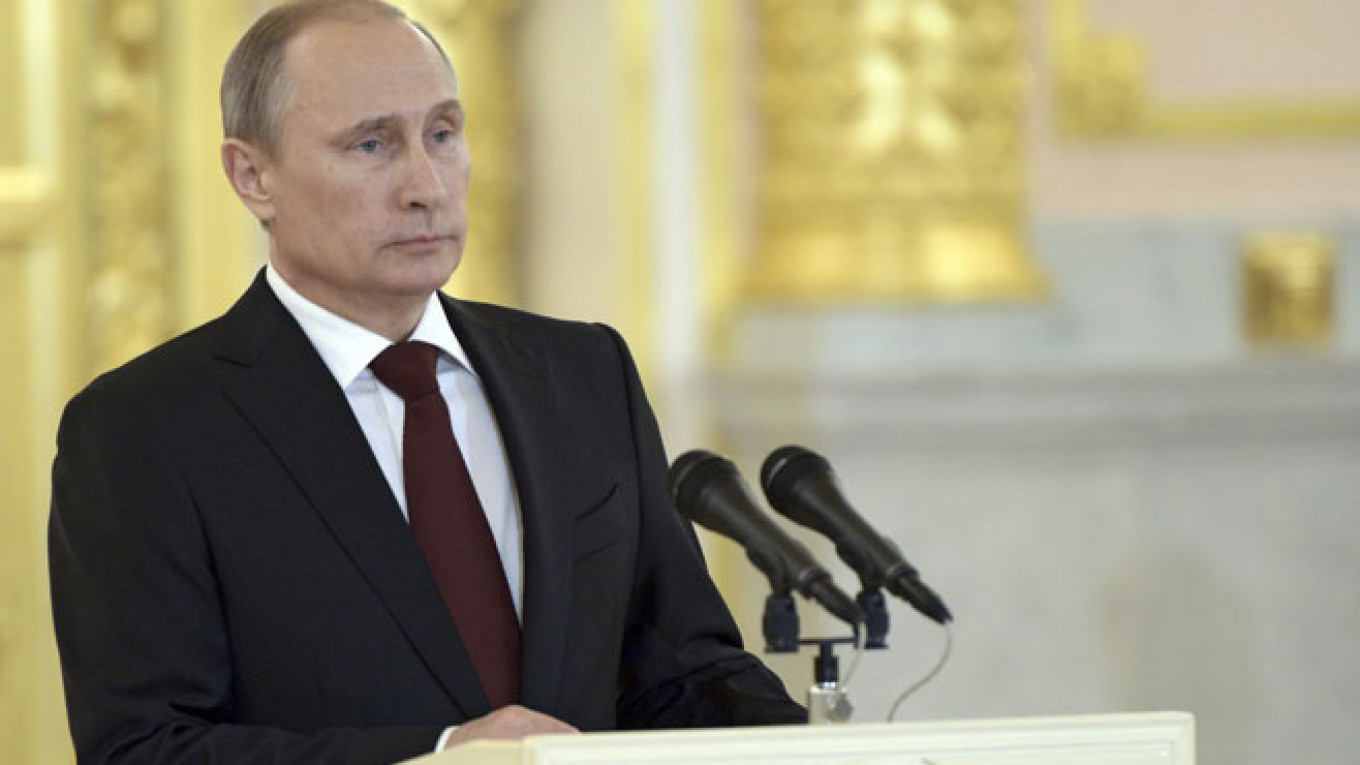Pro-Russian separatists and government troops are fighting bloody battles in the area that Ukrainians call southern and eastern Ukraine, but that Putin's propaganda calls Novorossia, or New Russia.
While the separatists were armed with nothing heavier than Kalashnikov rifles at the outset of the conflict, they now have tanks, armored personnel carriers, anti-aircraft and anti-missile systems as well as multiple-rocket launchers. Putin continues to deny that these weapons were sent from Russia, although a growing body of evidence points to the contrary. But despite their newfound firepower, the separatists are unhappy because Russia has failed to fulfill its promise to send in the regular army.
Russian society is thus left to speculate over Putin's plans for Novorossia. Had he originally planned to annex the region immediately after Crimea? If so, why did he change his mind?
After all, the situation there unfolded in exactly the same way as in Crimea, with separatists holding a referendum declaring their independence from Ukraine. However, Russia annexed Crimea two days after its referendum, whereas the Kremlin has yet to give even the slightest suggestion that it recognizes a new "independent state" in Ukraine.
Perhaps Putin never planned to annex Novorossia. Maybe he fomented a civil war in order to destabilize Ukraine. This would allow Russia to then step in with a "helping hand" to save it from complete economic and social collapse, thereby cutting it off from Europe. That would strike a blow at Europe, whom Putin considers his greatest enemy after the U.S. This scenario is entirely possible.
There is also a widespread opinion that Putin's policy in Ukraine is meant to show the Russian people what comes of Kiev's Maidan Square protests — that is, a popular revolt against corrupt leaders. "Just sit quietly, and don't rock the boat," Putin is effectively telling them."Sure you are surrounded by thieves, but at least bombs and shells are not raining down on you from the sky."
Or perhaps the Kremlin's intentions don't follow a straight line. To understand how the Kremlin's goals have changed over time, simply read the Russian press from March and April. Right there among the various reports is the official transcript of a March 1 meeting of the Federation Council authorizing the use of Russian troops in Ukraine — not in Crimea, mind you, where Russian troops were already stationed according to a previous bilateral agreement with Kiev.
At this meeting, every single senator, without exception, said that Russia was obligated to send troops to Ukraine's south and east to protect the Russian-speaking population allegedly under siege. Moscow did not send in the regular army, but only because the U.S. and European Union quickly organized blocking maneuvers at the United Nations and repeatedly introduced sanctions as the situation deteriorated.
Whatever Putin's foreign policy though, it is clear that there will be consequences for Russia. After several rounds of limited sanctions, the West is now threatening broad sanctions that could paralyze entire sectors of the Russian economy. And although Putin has repeatedly said he could care less about sanctions, eastern Ukraine is a hardly a prize catch. Even before the recent conflict it was an economically depressed region that relied on subsidies from the central Ukrainian government.
Perhaps his goal in Ukraine is grander, though, than these short-term goals. Putin declared at the Kremlin ceremony marking the annexation of Crimea in March that the Russian people are the largest geographically disconnected people in the world and that he sees it as his job to unite them all in a single state. But that goal is worthy of the Middle Ages, not 2014. Thankfully, that task is actually impossible. The economy will simply collapse if he attempts it.
Andrei Malgin is a journalist, literary critic and blogger.
A Message from The Moscow Times:
Dear readers,
We are facing unprecedented challenges. Russia's Prosecutor General's Office has designated The Moscow Times as an "undesirable" organization, criminalizing our work and putting our staff at risk of prosecution. This follows our earlier unjust labeling as a "foreign agent."
These actions are direct attempts to silence independent journalism in Russia. The authorities claim our work "discredits the decisions of the Russian leadership." We see things differently: we strive to provide accurate, unbiased reporting on Russia.
We, the journalists of The Moscow Times, refuse to be silenced. But to continue our work, we need your help.
Your support, no matter how small, makes a world of difference. If you can, please support us monthly starting from just $2. It's quick to set up, and every contribution makes a significant impact.
By supporting The Moscow Times, you're defending open, independent journalism in the face of repression. Thank you for standing with us.
Remind me later.






